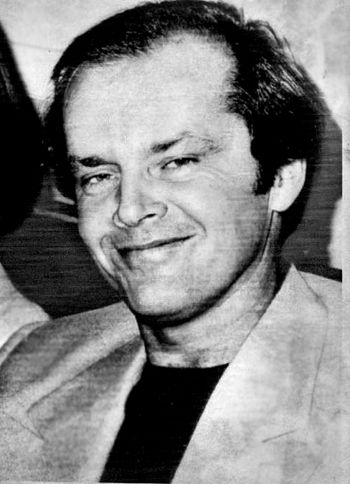
Given ongoing climate change here on earth, could Mother Earth turn out someday to be Mother Mars?

Dr Moffic is an award-winning psychiatrist who specialized in the cultural and ethical aspects of psychiatry and is now in retirement and retirement as a private pro bono community psychiatrist. A prolific writer and speaker, he has done a weekday column titled “Psychiatric Views on the Daily News” and a weekly video, “Psychiatry & Society,” since the COVID-19 pandemic emerged. He was chosen to receive the 2024 Abraham Halpern Humanitarian Award from the American Association for Social Psychiatry. Previously, he received the Administrative Award in 2016 from the American Psychiatric Association, the one-time designation of being a Hero of Public Psychiatry from the Speaker of the Assembly of the APA in 2002, and the Exemplary Psychiatrist Award from the National Alliance for the Mentally Ill in 1991. He presented the third Rabbi Jeffrey B. Stiffman lecture at Congregation Shaare Emeth in St. Louis on Sunday, May 19, 2024. He is an advocate and activist for mental health issues related to climate instability, physician burnout, and xenophobia. He is now editing the final book in a 4-volume series on religions and psychiatry for Springer: Islamophobia, anti-Semitism, Christianity, and now The Eastern Religions, and Spirituality. He serves on the Editorial Board of Psychiatric Times.

Given ongoing climate change here on earth, could Mother Earth turn out someday to be Mother Mars?

To me, the following psychiatrists were spectacular in their life work: they often ended it in a blaze of glory-- like the fall leaves -- before they fell silent on the earth.

Today's headlines about security breaches leave me wondering: how do we accurately assess our own security risk?

Do our fears prevent us from embracing a reverence of life -- all life -- as Dr. Albert Schweitzer advocated a century ago?

Have you heard of Psychiatrists for Environmental Action and Knowledge (PEAK)? There are ways for us to help treat climate instability and global overheating!

In the USA, we have drive-thru food, pharmacies, and banks. And now we have drive-thru viewing at funeral homes.

The news today is good for our mental health. More Americans have health insurance. One survey shows a drop in the numbers of those who've experienced serious psychological stress in the past 30 days.

"Go inward, so that you can go onward, and then upward." Here: two things that can help keep us happy.

Instead of a military search and destroy mission, this psychiatrist proposes a psychological search and revive mission.

What can we-the public and professionals-try to do to prevent suicide, ranging from our individual relationships to international relationships?

Racism in basketball . . . domestic violence in football. Does sports cause more psychological damage than benefits?

It should be clear that racism remains a major problem in the US-in sports, psychiatry, mental health treatment, and elsewhere.

The son of convicted Ponzi schemer Bernard Madoff died this week. As Andrew Madoff's death indicates, you don't stop being a father when your children are adults.

"That brother is my sister," says the commander of a former Navy Seal who who has now transitioned into being a female.

In fighting Ebola in West Africa, healthcare givers have knowingly put their own lives at risk. If that isn't following the medical ethics principle of putting the patient first, what is?

If there is an action that is further from sitting next to someone and trying to understand the psychology of their brain, it is standing next to someone and preparing to behead them.

While we still have our good mornings-whether in Vietnam or elsewhere-we must forever say good night to Robin Williams and to thank him for all the good times.

To some extent, humiliation is part and parcel of the human experience. Some make the case that minor experiences can be psychologically beneficial. The important challenge for mental health professionals to help patients understand and reduce humiliation.

More than 50 years have passed since One Flew Over the Cuckoo’s Nest was published, and almost 40 years since the movie was released, but the issues seem as relevant today as they were back then. If you haven’t seen the film or have forgotten what you saw, see it again as soon as you can. Here's why.

The passing of poet and humanitarian Maya Angelou, a 50th high school reunion, Memorial Day, the Tomb of the Unknown Soldier, and a eulogy to the Unknown Psychiatrist. . .

Those who have experienced extreme trauma and their descendents have taught us much about resilience, renewal, and redemption-outcomes that are all recalled in this period of the Jewish Passover, Christian Easter, and Holocaust Memorial Week.

President Obama has told his daughters that that he thinks smoking marijuana is a "bad idea." I will tell my grandchildren the same thing. But what do I know? Not a whole lot, I'm afraid. How about you?

Psychiatry in China? Up until about a decade ago, that could have been considered an oxymoron. Yet, just as China has modernized and embraced a Chinese form of capitalism, so psychiatry is becoming modernized in a Chinese form of psychiatry.

This is the first in a series in which Dr Steve Moffic (and possibly other bloggers) revisits the blogs he has been writing for Psychiatric Times for the past several years.

Apologies seem rare, as does asking for forgiveness, when it comes to Internet ethics and cyber-bullying. Given the “Wild West” nature of Internet communication-with no commonly accepted rules-what might be done? Is there a communication model that might work better? Yes there is, according to this psychiatrist.

As the accolades roll in for Nelson Mandela on his death, lost among his astonishing accomplishments may be his relevance to mental health.

We know so little about community grieving. What is normal and what is not? Perhaps the tragedy in Newtown needs a careful analysis over time.

Some serendipitous occurrences made me wonder (even as a rational psychiatrist) whether something spooky and supernatural had been transmitted to me by the shaman who conducted a "Mother Earth" ceremony. Here's what happened.

A range of psychiatrists are remembered-from pioneers in psychoanalysis to trance studies; from psychopharmacology to reality therapy; from the normality of homosexuality to the psychopathology of “brain fag” syndrome; from flowers to film; from childhood to old age; from everyday clinicians to courageous challengers of the status quo; and from student to expert.

It is hard for mental health professionals to discuss completed suicides. Legal fears, confidentiality concerns, shame, and stigma are formidable obstacles. But talk we must, for talking-and listening-is a key to prevention and treatment.